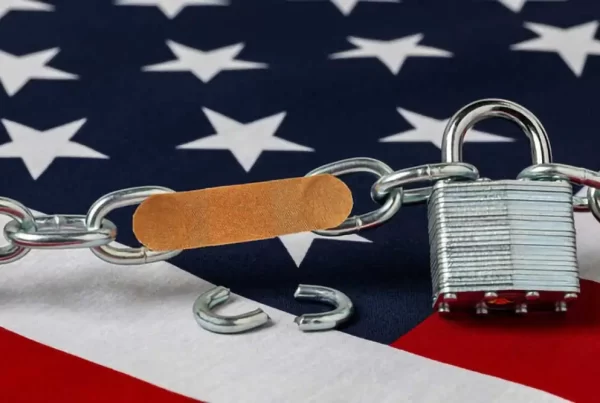As we all know, in 2013, USCIS implemented the I-601a Provisional Waiver Program, which allows the spouses of U.S. citizens to file their waiver applications requesting forgiveness for their unlawful presence here in the United States, await an approval, and then depart for their scheduled interview only after the waiver is approved. This was a significant change in the law because families were separated for a much shorter period of time, and there was much less fear associated with having to depart the U.S. for an interview – they knew they would be able to return with a green card. The biggest downside of this newly implemented waiver was that it was only made available to spouses and children of U.S. citizens. Until now!
What does this latest announcement mean?
Until today’s announcement, only certain classes of immediate relatives with qualifying relatives (U.S. citizen spouses and parents) were eligible to file a Provisional Waiver Application. USCIS just released the expanded version of the program, and applicants who have a lawful permanent resident spouse or parent are now eligible to file for this waiver!! It is no longer a requirement that the individual wait for their qualifying family member to become a citizen before being eligible to file! This new rule will go into effect as of August 29, 2016.
As a reminder of the original rules, the waiver we are talking about is the waiver that is needed to be forgiven for the offense of accumulating unlawful presence in the United States. Unlawful presence occurs when someone is not in lawful status in the United States, regardless of their mode of entry. Typically, individuals who come into the US with a visa retain the right to process for permanent residence in the United States if they are married to a U.S. Citizen, or have U.S. Citizen children who are over the age of 21. On the other hand, individuals who entered the U.S. without inspection typically cannot file for a green card in the U.S. Assuming they are otherwise eligible, this is where those individuals can benefit from the Provisional Waiver Program. Those who are otherwise eligible must leave the U.S. and process for their permanent residence abroad. But, as soon as they leave, because they have typically had more than one year of “unlawful presence (being illegal), they are then barred from returning to the United States for 10 years, as punishment for their unlawful entry and unlawful stay.
Again, this regulation merely changes where and when the waiver can be applied for, and now it also changes the classes of individuals who are eligible. It does NOT eliminate the need of the person to leave the United States to process for residence through their spouse or parent.
As another important reminder, children are NOT qualifying relatives for purposes of the waiver of the three and ten year bars. Individuals who are currently in removal proceedings are eligible for submitting the waiver, IF their removal proceedings have been administratively closed and not re-calendared at the time of filing of the waiver request. Persons in this situation need to have their immigration court cases terminated or dismissed before leaving the US to avoid delays in returning at the consulate.
What are some other changes in the expanded rule?
While the individual still has to be in the United States in order to file the waiver, there is no longer a restriction to the filing of the waiver if the applicant’s visa interview was scheduled before the effective date of the rule. It is to be determined as to whether this new rule is retroactive, but it does not appear to be the case at this time.
Another significant change under these new expansion rules is that a person with a final order of removal may now file a 212 waiver of the removal order in the United States, and upon approval, move forward with the provisional waiver application.
Have there been any changes to the process?
In summary, there have not been any changes to the process other than the eligibility requirements stated above. The filing fee for the new waiver process is the same as it is for the current waiver process, $585, plus an additional $85 for the biometrics fee (though there is a proposed fee increase that will go into effect in the next 60 days, so check back). USCIS will not accept a filing of the Form I-601A based on a qualifying LPR spouse or parent until August 29, 2016, and it will only accept that form once the I-130 has been approved, and the National Visa Center has begun the process for consular processing, with the necessary initial fees paid by the applicant, evidenced by the Department of State Visa Processing Fee Receipt. In this expanded rule, USCIS does not modify how it makes extreme hardship determinations or how it defines extreme hardship. Consistent with how USCIS currently makes extreme hardship determinations, USCIS will consider all factors and supporting evidence that an applicant submits with his or her provisional unlawful presence waiver application.
Please contact Danielle M. Claffey at 404.949.8151, or by email at dclaffey@immigration.net with any questions.




